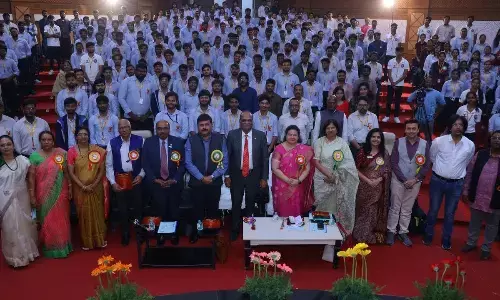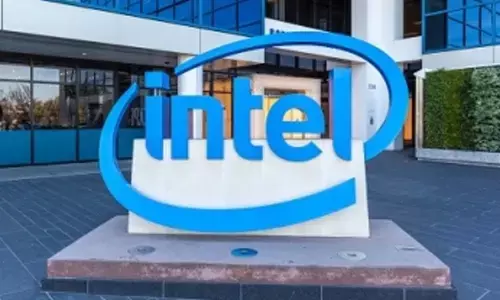IIT-R Prof awarded GD Naidu Award

Indian Institute of Technology Roorkee Faculty P Gopinath has been awarded the prestigious GD Naidu Award for Young Scientist by Makkal Sinthanai Peravai,a nonprofit organization The award carries a cash component of Rs 1 lakh and citation and is sponsored by the Singapore Mustafa Tamil Trust
Hyderabad: Indian Institute of Technology Roorkee Faculty P Gopinath has been awarded the prestigious GD Naidu Award for Young Scientist by Makkal Sinthanai Peravai,a non-profit organization. The award carries a cash component of Rs 1 lakh and citation and is sponsored by the Singapore Mustafa Tamil Trust.
The award was given to Gopinath, who is an Associate Professor in Department of Biotechnology, IIT Roorkee for his outstanding contribution in the field of biomedical nanotechnology by M Ananda Krishnan, , former honorary chairman of the Board of Governors of the, Indian Institute of Technology Kanpur and Former Vice-Chancellor of Anna University, Chennai.
Gopinath developed various polymer based nanocarriers for the delivery of several anticancer agents and also exploring the possibilities of different biocompatible imaging agents for cancer diagnosis. To detect cancer cells, his research group has recently synthesized carbon dots by heating a solution of finely chopped periwinkle plant leaves under controlled conditions and then cooled it down to room temperature.
This process yielded nanosized carbon dots. When incubated with specific cancer cells, the carbon dots entered the cells. These cells showed enhanced fluorescence, indicating that the dots reached inside the cells.
By this way, cancer cells can be detected and as the entered carbon dots binds and destroy the cytoskeleton proteins, they can be used as an anti-cancer agent as well. This is an economical and green way to produce fluorescent carbon dots from the leaves of a common medicinal plant.
His research group has also developed a portable nanofibrous membrane that removes bacteria present in the polluted water. This membrane can be used similar to cloth based homemade filter to remove other pollutants present in the water by simple filtration. It could also be possible that immersing the membrane in the contaminated water would kill the bacteria due to the presence of bactericidal agent (Silver nanoparticles). His research group has also developed nanomaterials for potential applications in air purification.
Currently, Gopinath’s research projects aim to produce economical and affordable solutions for pressing healthcare problems facing the country. He has filed a patent for “4D tissue engineering device” and also published high impact research articles in many of the world’s leading biomedical journals.











